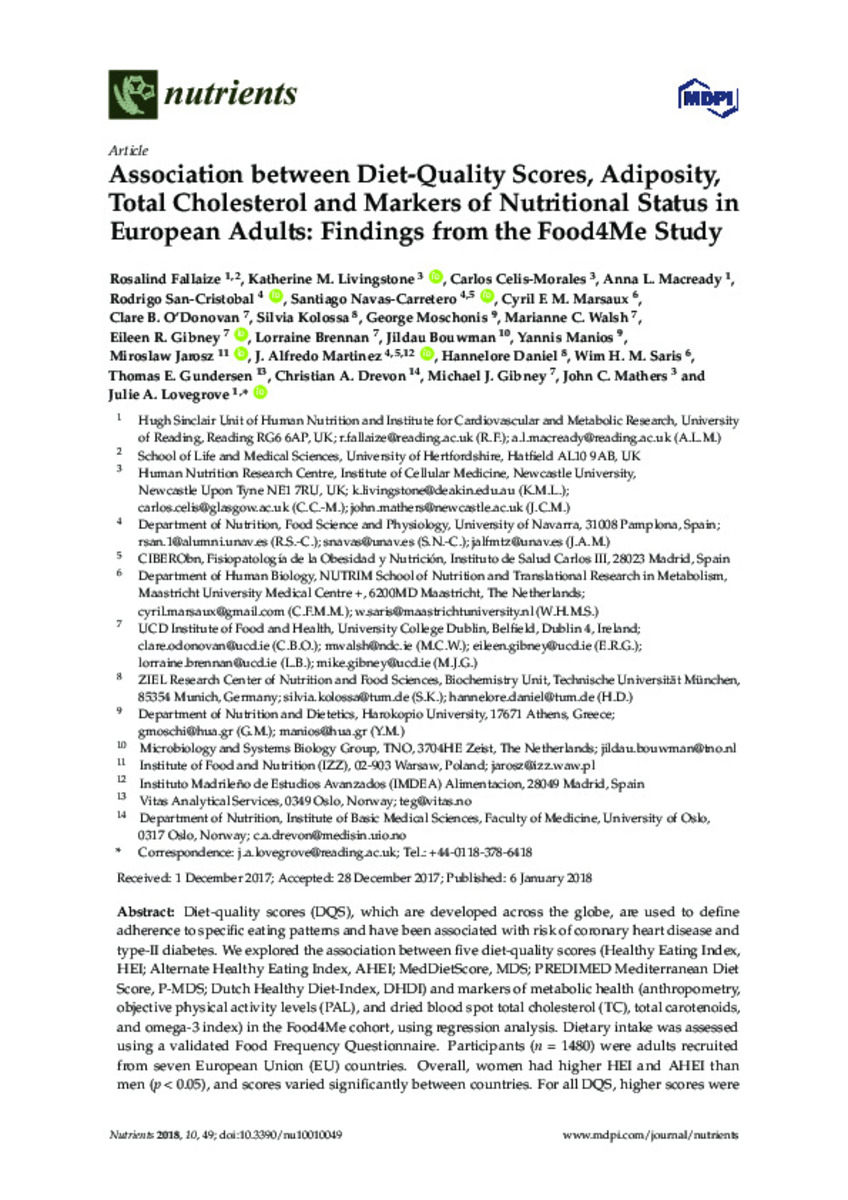Association between diet-quality scores, adiposity, total cholesterol and markers of nutritional status in European adults: findings from the Food4Me study
Keywords:
Diet scores
Metabolic health
Personalized nutrition
Healthy Eating Index
Mediterranean Diet Score
Dutch Healthy Diet Index
Nutritional biomarkers
Dried blood spots
Note:
This article is an open access
article distributed under the terms and conditions of the Creative Commons Attribution
(CC BY) license (http://creativecommons.org/licenses/by/4.0/).
Citation:
Fallaize, R. (Rosalind); Livingstone, K.M. (Katherine M.); Celis-Morales, C. (Carlos); et al. "Association between diet-quality scores, adiposity, total cholesterol and markers of nutritional status in European adults: findings from the Food4Me study". Nutrients. 10 (1), 2018, 49
Statistics and impact
0 citas en

0 citas en

Items in Dadun are protected by copyright, with all rights reserved, unless otherwise indicated.








